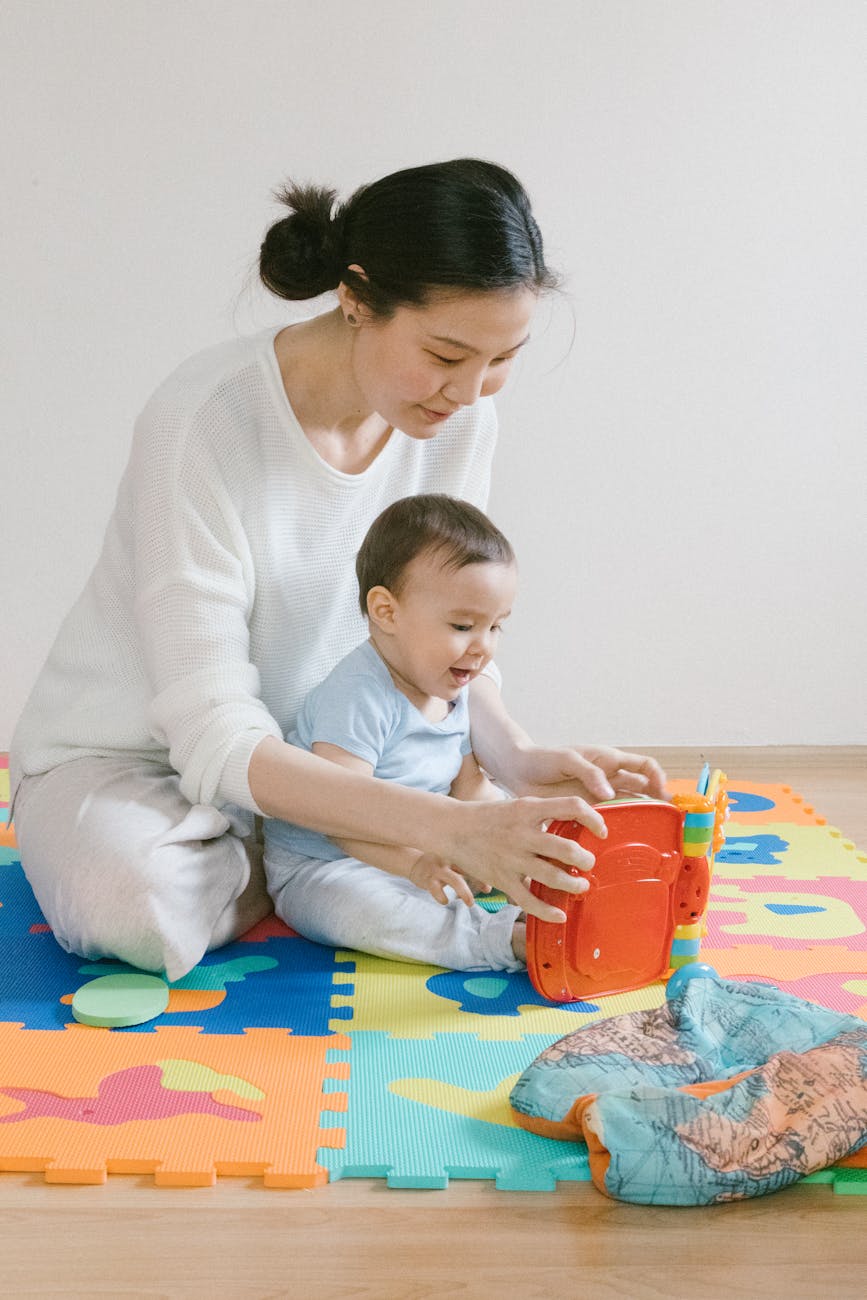Ever heard the phrase “play is the work of children”? Well, there’s more truth to that than you might think! Playtime isn’t just about giggles and fun (although those are important too!). It’s actually a critical element for fostering a child’s cognitive development and setting them up for future success.
Learning Through Laughter: The Benefits of Play
Studies show that playtime offers a treasure trove of benefits for children, including:
- Enhanced cognitive skills: Play stimulates brain development, improving memory, problem-solving, and critical thinking.
- Boosted creativity and imagination: Play allows children to explore new ideas, create worlds of their own, and express themselves freely.
- Social and emotional development: Through play, children learn to interact with others, share, take turns, and navigate emotions.
- Improved motor skills: Playtime helps refine fine and gross motor skills, from building with blocks to running around the park.
Spark Curiosity: Fun Activities to Ignite Your Child’s Potential
Now that we know the amazing power of play, let’s dive into some engaging activities to get those little minds buzzing:
- Sensory Play: For younger children, explore textures with homemade playdough or kinetic sand. (This is a great activity for strengthening fine motor skills and stimulating the sense of touch! Squeezing, rolling, and shaping dough helps develop the small muscles in their hands, which are crucial for future tasks like grasping a pencil and writing.)
- Building Blocks: Classic building blocks encourage creativity, spatial reasoning, and fine motor skills. As children build towers and structures, they’re not just having fun, they’re also developing their understanding of space, scale, and balance. Plus, manipulating the blocks strengthens those little hand muscles!
- Dramatic Play: Dress-up and pretend play spark imagination and social interaction. Whether they’re transforming into a swashbuckling pirate or a caring doctor, dramatic play allows children to express themselves creatively, explore different roles, and learn to interact with others.
- Arts and Crafts: Painting, drawing, and sculpting nurture creativity and fine motor skills. These activities provide a fantastic outlet for self-expression and imagination. Plus, holding crayons, paintbrushes, and sculpting tools helps refine those small hand muscles, which are important for tasks like buttoning a coat or tying shoelaces.
- Storytelling and Singing: Engage young minds with interactive stories, rhymes, and songs. Storytelling isn’t just about entertainment; it helps develop language skills, memory, and imagination. Singing along to songs reinforces these benefits and adds a musical element to learning.
- Themed Playdates: Plan playdates with specific themes like pirates or doctors to encourage imaginative exploration. Themed playdates take imaginative play to a whole new level! By setting a theme, you provide a springboard for creative storytelling, problem-solving, and social interaction as children work together to bring their themed world to life.
The Takeaway: Embrace the Power of Play
By incorporating playtime into your child’s routine, you’re not just keeping them entertained – you’re investing in their future! So next time you hear those giggles, remember, playtime is a powerful tool for nurturing a healthy, happy, and intelligent child.
Let’s Keep the Conversation Going!
What are your favorite playtime activities that boost your child’s development? Share your ideas and tips in the comments below!
Bonus Tip: Remember, the best toys are often the simplest ones. Cardboard boxes, blankets, and everyday household items can spark endless creativity!
Want to discover more benefits of playtime and age-appropriate activities? Check out resources from the American Academy of Pediatrics or the National Association for the Education of Young Children.


Leave a Reply